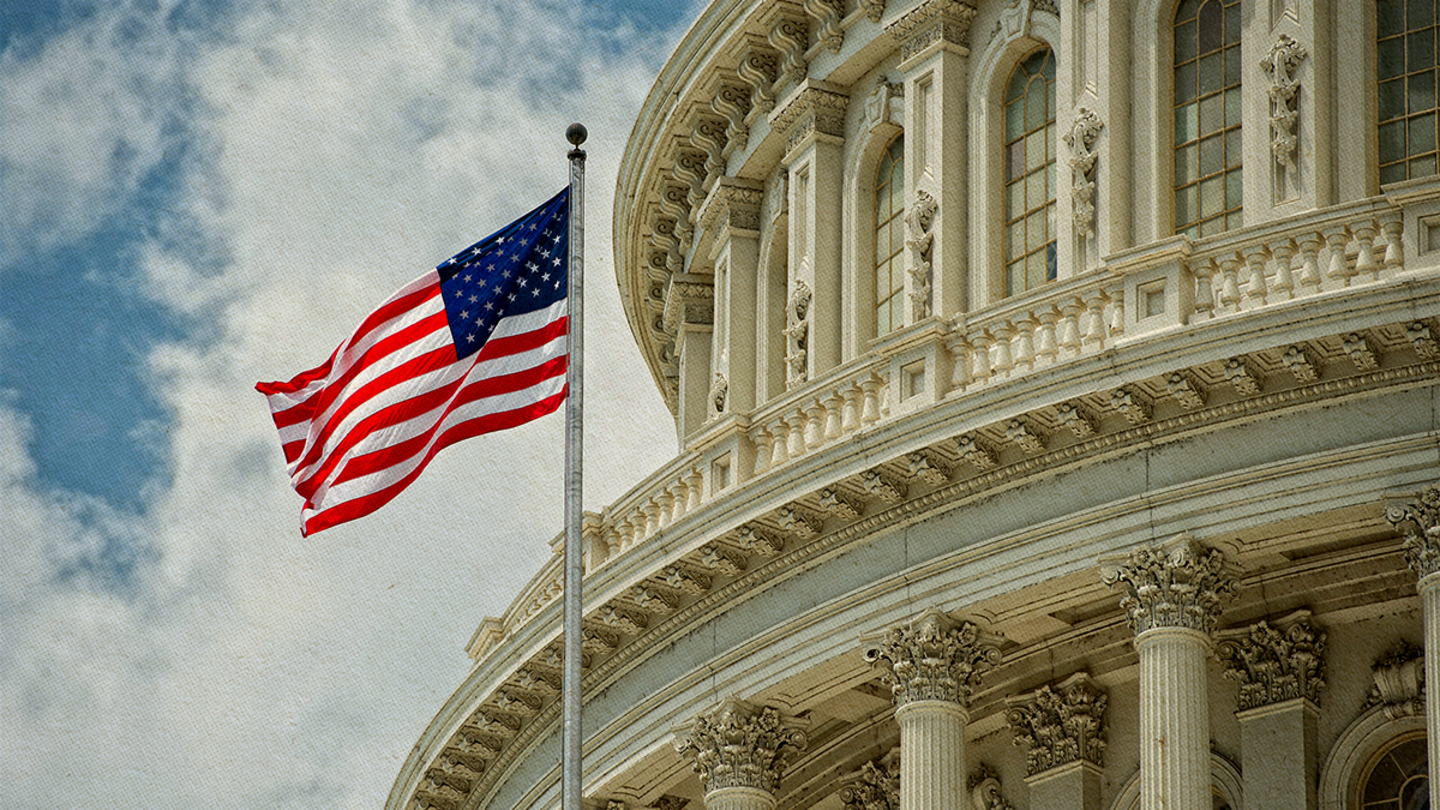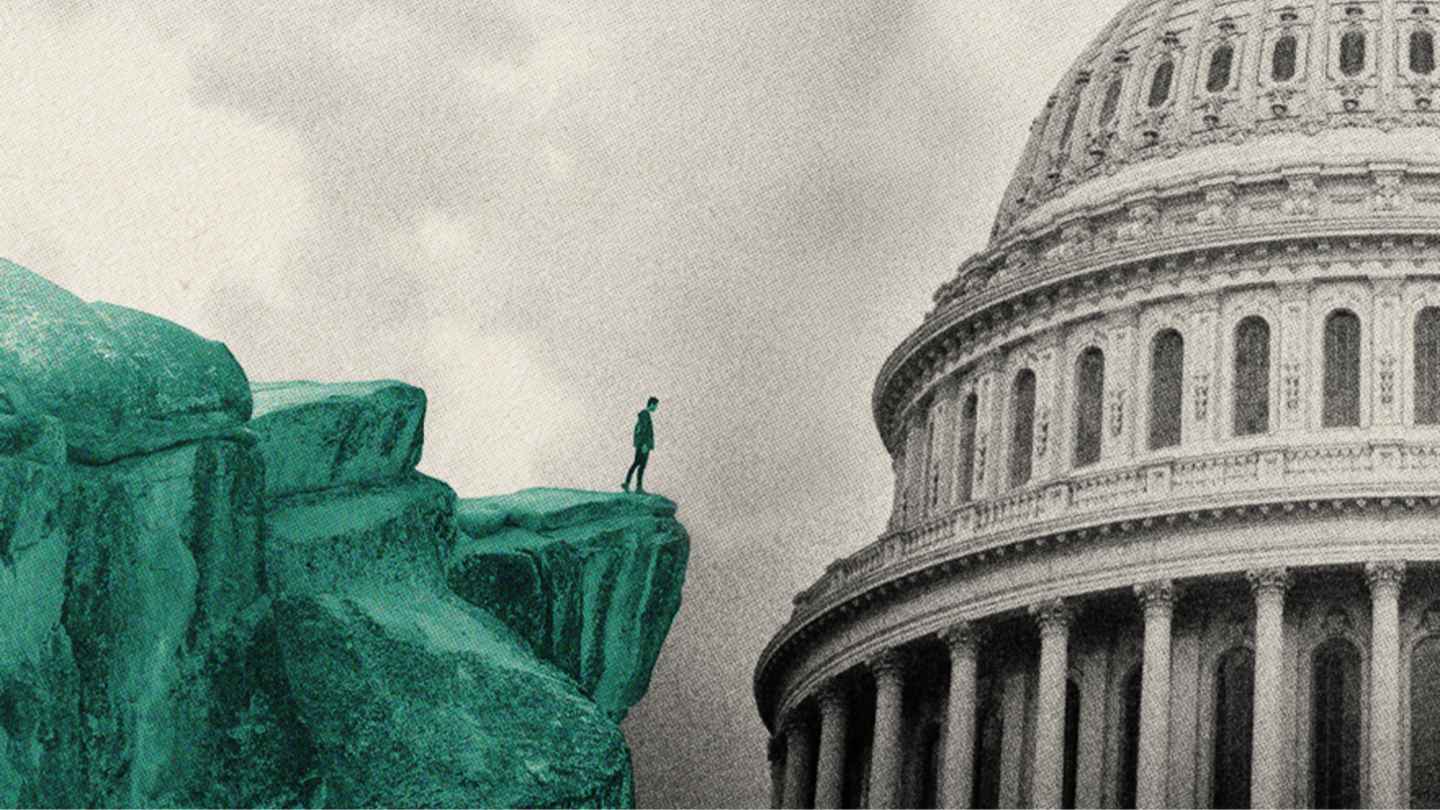Three digits. It doesn’t seem like much, but those three numbers dictate many Americans’ quality of life.
“Whether you like it or not, Americans are defined by their credit scores,” said Lamine Zarrad, founder of StellarFi. “Credit scores power the American Dream.”
In fact, they dictate whether Americans buy cars and homes, send their kids to college, or retire at 65.
As a former bank regulator, Zarrad has unique insights into the behind-the-scenes processes that go into our financial institutions and just how much power they hold over our day-to-day lives.
“Consumer credit sits at the very center of the U.S. economy,” said Zarrad. But 150 million Americans have poor or no credit, which means that a huge portion of the population isn’t able to participate fully in that economy.
Poor credit “traps people in cycles of debt,” Zarrad said. “As an immigrant, I had to learn this firsthand. But what if we could help two-thirds of the adult population in this country climb out of this downward spiral?”
Many aspects of our lives depend on our credit scores — but those scores are based on inaccurate numbers, meaning the whole system is faulty.
According to Zarrad, lenders are basing credit scores on bad data — data that doesn’t tell the whole story. Credit scores were born from a midcentury era of high consumerism, but today, they only capture a fraction of our digital spending habits. This has huge implications for Americans’ lives.
“What if we could use technology to rethink the way credit scores are measured?” Zarrad asked. With StellarFi, he hopes to do just that.
StellarFi is a fintech company dedicated to helping people build credit via its online platform. The app tracks users’ spending habits — all of them, including oft-overlooked monthly bills. By reporting these automatic payments to major lenders, StellarFi enables subscribers to improve their credit scores, granting them greater financial freedom to borrow, spend, and fully engage in the economy.
It may sound simple — but these small adjustments are having major impacts on Americans’ financial freedom, empowering them to pursue the lives they want for themselves every day.
Credit scores were built for the past. It’s time they caught up.
“Think of our economy as an engine,” said Zarrad. Specifically, a car engine.
“What makes the United States a unique country, and certainly a unique economy, [is that] it’s driven by consumer credit,” he said. “That means that our economic engine revolves around each consumer’s ability to borrow money, spend that money, pay it back, and borrow it again. It is a cycle.”
That description may sound simple, but it leaves two major questions unanswered: Where do credit scores come from? And what factors affect them?
Sign up for the Stand Together newsletter and get stories, ideas, and advice from changemakers to help you tackle America’s biggest problems.
Consumer credit was born out of the 1950s, when America was undergoing a huge economic boom. During that time, consumerism was at a high point, with people spending frequently on new products like vacuum cleaners and dishwashers. Many lenders saw a chance to profit from the shopping frenzy by offering Americans the opportunity to borrow capital.
There was a glaring problem: “They really couldn’t determine whether someone was a good borrower or not a good borrower,” said Zarrad.
Fast forward to the 1980s: Banks adopted the credit score as a simple way of classifying how reliable a person was to lend money to.
“The adoption of the credit score was very much driven by government policy,” Zarrad explained. “The intent was to protect the consumer against discrimination behaviors. The credit score separated the borrower from their race, their gender, their geography.”
That sounds good in theory, but this created a new problem — one that persists today.
Your credit score reflects only a small portion of your overall spending habits, often overlooking important spending like monthly bills and subscriptions. As a result, a person may be far more financially responsible than their credit score suggests.
But a bad score can keep a person from achieving the American Dream.
“I don’t think most of us really understand how important just a hundred points can be when it comes to impacting one’s life,” Zarrad said. “A hundred points can be the difference between being able to drive a car to work and not being able to drive a car to work. A hundred points is the difference between being able to live in a house and not live in a house. It is existential.”
Zarrad pointed out that it’s a paradox: You need credit to build credit, but if you borrow money with bad credit, you often pay hefty fees.
“Those purchases can haunt you for the rest of your life if you don’t know how to manage the repayment,” Zarrad said. “So the cards are already stacked against you.”
For a problem several decades in the making, Americans need a modern solution. It may be tempting to default to government regulation to solve such a large-scale problem that affects individuals’ quality of life. However, entrepreneurship and fresh ideas can be even more effective at empowering those who have been disadvantaged by the system.
“You may think that the best path forward to fixing the system is more regulation or regulation in general,” Zarrad said, “but as a former bank regulator, I can tell you: The best path forward is through technology and innovation.”
Enter StellarFi, an app that provides credit bureaus with a more complete picture of a person’s financial reliability.
A credit score that reflects — and empowers — the whole person
It’s no secret that we live in an information age: Consumers’ every purchase, search, and behavior is tracked, creating a massive data profile for each person. This includes their buying history across multiple financial institutions, all accessible with the consumer’s permission. For those struggling with bad credit, this wealth of information could be a valuable resource.
“People are already making good financial decisions every day — and now, we can use technology to reward them for this behavior,” Zarrad said.
At its core, the credit score system has a visibility problem. Banks can’t see enough of consumers’ good spending habits — things like utilities, phone bills, subscriptions, and other automatic payments.
In an era when we can share nearly every detail of our lives on social media, sharing this financial information with our banks should be just as simple, right?
Doing so could dramatically improve individuals’ credit ratings and, by extension, their lives.
Americans pay a staggering $4.6 trillion in bills each year. “The opportunity to make those payments work for them is huge,” said Zarrad. “Together, they create a full picture of the borrower.”
Lenders do offer loans specifically designed for people with bad credit, but the loans usually come with extremely high interest rates — upward of 40-50% — that only further bury borrowers in debt.
Zarrad is part of a growing group of entrepreneurs who want to help people qualify for loans that could be helpful to them.
“What’s exciting today is that there’s a new generation of companies that are leveraging that technology to create access to credit,” he said.
Zarrad created StellaFi to “allow consumers to extend the most intimate details about their financial lives to lenders, based on real-time data.”
What’s novel about this app is the way it reports a person’s spending. Instead of paying their monthly bills directly from their bank accounts, users make accounts on StellarFi that pay those bills on their behalf, tracking them as they do. All bills are paid on time, and StellarFi reports these good habits to the major credit bureaus.
“As a result, every single one of those bills now counts towards your credit score,” said Zarrad.
It’s catching on: StellarFi has over 750,000 users. After just five months on the platform, users see an average credit score improvement of over 77 points.
That has huge real-world implications.
“We’ve seen people’s lives completely transform,” said Zarrad. “Our customers have been able to buy homes, buy cars, and start businesses just a few months after using our product.”
One user was able to improve his score by over 120 points, allowing him to qualify for a mortgage and purchase a home in one of the most challenging economic environments.
“We want to use innovation to empower people and to break the cycle of poverty,” Zarrad said.
According to Zarrad, even if you already have great credit, this issue still impacts you in a real way. Opening up access to credit for more borrowers will improve the economy for everyone.
“Our economy is an interconnected ecosystem where people, financial institutions, and many other stakeholders interact in a symbiotic way,” Zarrad said. “If 150 million people — two-thirds of the adult population — suddenly had more access, lower interest rates, more disposable income, [it would] effectively make the economy a lot more efficient. And an efficient economy is an economy with less taxes, more accessible goods and services, cheaper health care.”
StellarFi may be simple in concept, but its underlying principles are transformational. The organization promotes policies that recognize the whole story of individual consumers and uses innovation, not legislation, to design solutions.
“Credit score improvements at that scale can absolutely transform the country,” said Zarrad. They can “truly supercharge that economic engine, unlocking the potential of the hundreds of millions of Americans that are being left behind.”
***
StellarFi is supported by Stand Together Trust, which provides funding and strategic capabilities to innovators, scholars, and social entrepreneurs to develop new and better ways to tackle America’s biggest problems.
Learn more about Stand Together’s efforts to make the economy work for all and explore ways you can partner with us.

Here are some issues the Department of Government Efficiency could target.

Only by using AI in real-world scenarios can we understand its capacity to address complex challenges.

Fear of change is nothing new, but how we respond to this moment really matters.

A coalition of scholars and policymakers are working on long-term economic solutions — together.
